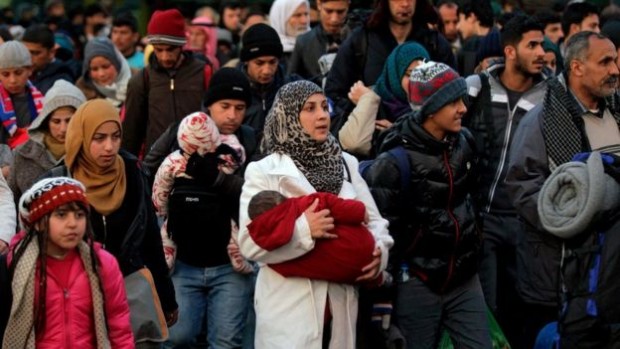NATO deploys patrols to stop human smugglers in the Aegean sea

Nato ships are being deployed to the Aegean sea to deter people-smugglers taking migrants from Turkey to Greece.
The announcement followed a request from Turkey, Germany and Greece at a defence ministers’ meeting in Brussels.
Nato chief Jens Stoltenberg said the mission would not be about “stopping or pushing back refugee boats”.
Nato, he said, will contribute “critical information and surveillance to help counter human trafficking and criminal networks”.
The decision marks the security alliance’s first intervention in Europe’s migrant crisis.
Nato’s top commander, General Philip Breedlove, said the warships would arrive within 24 hours and that he was putting together a mission plan.
US defence secretary Ashton Carter earlier said that targeting the “criminal syndicate that is exploiting these poor people” would have the greatest humanitarian impact.
The decision was made to help Turkey and Greece “manage a human tragedy in a better way than we have managed to do so far,” Mr Stoltenberg, Nato Secretary General, said.
Nato’s Standing Maritime Group 2, which is under German command and is comprised of five ships, will lead the operation.
It will share information with the Greek and Turkish coastguards, and EU border agency Frontex.
German Defence Minister Ursula Von der Leyen said several Nato members had pledged warships and that any refugees rescued would be returned to Turkey, a fellow Nato ally.
A European Commission spokesman said it viewed the plan as “a sort of forerunner” to a proposed European coast guard.
Mr Stoltenberg said reconnaissance and intelligence gathering was also being stepped up at the Turkey-Syria border.
Almost 75,000 migrants and refugees have already arrived in Greece by sea in 2016, the UN refugee agency says. Of those, 45% are Syrians. More than 400 people have died attempting the crossing.
One of the most popular destinations is the Greek island of Lesbos, just a few miles from the Turkish coast.
Separately, two people-smugglers have gone on trial in Turkey in connection with the death of Alan Kurdi – the Syrian boy whose body was photographed washed up on a Turkish beach – and four other people. They have denied the charges against them.
Turkey is now home to more than 2.5 million Syrians, and Turkish President Recep Tayyip Erdogan has been highly critical of Europe’s response to the crisis.
On Thursday, he confirmed that he had threatened, at an EU summit meeting in November, to send busloads of refugees and migrants into Europe.
Minutes of that conversation had been leaked earlier in the week.
He appeared to renew that threat when he told a business meeting on Thursday: “We will be patient but we will do what we have to.”
World leaders are meeting in Munich to discuss a ceasefire proposal for Syria.
How to submit an Op-Ed: Libyan Express accepts opinion articles on a wide range of topics. Submissions may be sent to oped@libyanexpress.com. Please include ‘Op-Ed’ in the subject line.
- Russian gas through Ukraine halts - January 02, 2025
- Janzour celebrates community reconciliation - December 30, 2024
- Egypt’s billionaires: We’re all losing money - December 29, 2024


